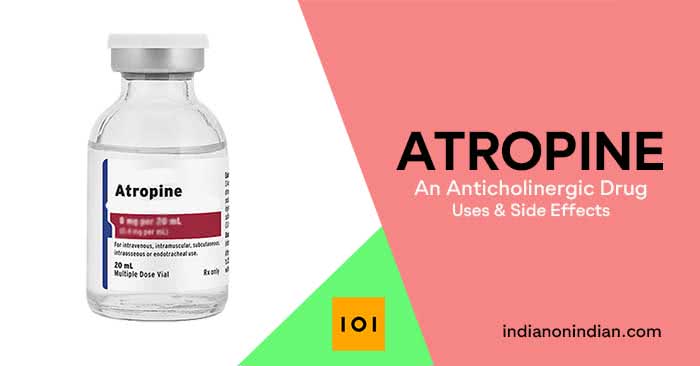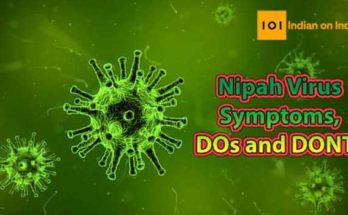Atropine is an anticholinergic drug and also shows antimuscarinic action, the origin of atropine is from Atropa belladonna(medicinal plant).
With this article you would be looking into the following:
- Route of administration
- Uses Of Atropine
- Side effects of Atropine
- Warning/Precautions
Route of administration:-
It is typically given intravenously (through injections). It is also at times used in the form of eye drop by ophthalmologists to treat disorders in the retina. The most effective route is always intravenous for all the drugs because of its highest bioavailability in the body.
Uses of Atropine
- Uses of it are Complex and there might another usage in the future. But we are going to list the usage we know base on research.
- It can be used in the treatment of eye problems, Heart Problem and systemic Poisonings.
- used for the treatment of some organic chemicals or gases that are produced in the nervous system which interrupt the actions of the nervous system through which central nervous system passes messages to all the organs in the body.
- It is also a very good drug to be used for Pesticide poisonings in living beings.
- It can also be useful in the treatment of bradycardia (slow heart rate)
- It is very effective to decrease the production of saliva during surgery.
Also Check: Vitamin A Benefits, Foods, Sources, and Deficiency
Atropine in the treatment of Eyes Problem:
Atropine eye drops have been found to be effective in the treatment of eyes problem, it has been shown to be used In slowing the progression of myopia in children in previous studies conducted, but it is not available for this use.
Topical atropine is used as a cycloplegic, use in the temporary paralyzing of reflex accommodation and mydriatic to dilate the pupils.
Atropine in the Treatment of Heart Problem:
It was included in international resuscitation guidelines for use in cardiac arrest associated with asystole and PEA but later removed due to lack of evidence for its effectiveness. Injection of atropine is used in the treatment of bradycardia (a heart rate <60 beats per minute).
It is also useful in treating second-degree heart block Mobitz type 1.
Lastly, Its injection is giving before anaesthesia to decrease mucus production (such as saliva) and use to stop the inverse effects caused by some medicines with some pesticides.
Also Read: Effects of Coronavirus on Brain Tissue and Functions
Atropine in the Treatment of Poisoning Attack:
During the world war era, Nerve Gas (Chemical warfare) is one of the most employed forms of attack and this normally has huge effects on the troops in the trench.
Troops who are likely to be exposed to Chemical weapons are always with auto-injectors with it and obidoxime, for them to be injected with in case of an attack. It can be used to reduce the effect of the poisoning by obstructing muscarine acetylcholine receptors, which would otherwise be overstimulated, by extreme acetylcholine accumulation.
It can also be prescribed for Rhinorrhea and Bradyaahythmai.
Side effects of Atropine
When Abused Atropine can be harmful to the body to the body system. We have many symptoms that can be observed by the abuser.
In overdose, It is poisonous. It is sometimes included in addictive drugs, particularly antidiarrheal opioid drugs like diphenoylate, in which the secretion-reducing effects of the atropine can also help the antidiarrheal effects.
Also, these side effects can be Notice: Dry mouth, Blurred vision, dry eyes, increased heartbeat, Difficulty in breathing, Restlessness and Drowsiness.
Warning/ Precautions
- Contact your doctor immediately if you notice any change in your body system
- Do not take when driving
- Do not take with alcohol as it can increase drowsiness
- Do not use when breastfeeding
Also Check: Diclofenac Sodium Introduction, Product, Effects and Side effects
3,004 total views, 2 views today




